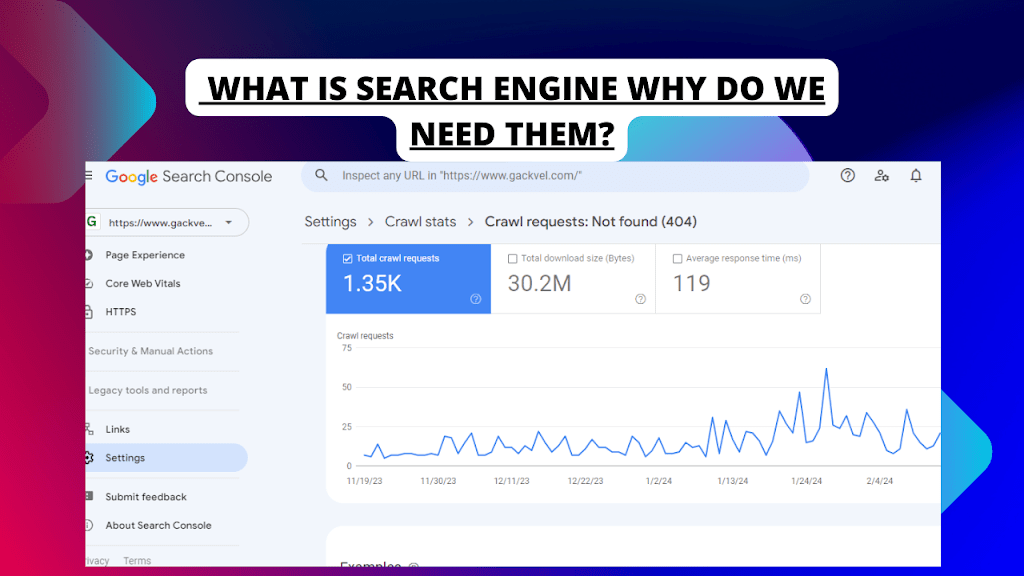What is search engine Why do we need them?

How To Do a Website Audit Bing Webmaster Tool
What is Search Engine: Why Do We Need Them?
Search engines have become an indispensable part of our daily lives, serving as virtual gateways to the vast ocean of information available on the internet. They are sophisticated software systems designed to help users find relevant content quickly and efficiently. From researching a topic to finding nearby restaurants, search engines like Google, Bing, and Yahoo play a pivotal role in simplifying our online experience.
Understanding Search Engine Functions
Crawling
At the core of every search engine is a process called crawling. This involves the search engine sending out bots, also known as spiders or crawlers, to scour the internet and discover new content. These bots follow links from one webpage to another, continuously indexing the information they find along the way.

Indexing
Once the crawlers retrieve information from web pages, it is organized and stored in massive databases called indexes. Indexing ensures that when a user enters a search query, the search engine can quickly retrieve relevant results from its vast repository of data.
Ranking
The final step in the search engine process is ranking. When a user enters a search query, the search engine analyzes numerous factors to determine the relevance and quality of each webpage in its index. Pages are then ranked based on these criteria, with the most relevant and authoritative pages appearing at the top of the search results.
Why Search Engines Are Essential
Information Retrieval
Search engines act as information hubs, allowing users to access a wealth of knowledge with just a few keystrokes. Whether it’s researching a school project or troubleshooting a technical issue, search engines provide instant access to relevant information from across the web.
Accessibility
In today’s digital age, the internet is teeming with information on virtually every topic imaginable. Search engines make this information accessible to anyone with an internet connection, breaking down barriers to knowledge and education.
Efficiency
Imagine trying to find specific information on the internet without the help of a search engine. It would be like trying to find a needle in a haystack. Search engines streamline the process of information retrieval, saving users valuable time and effort.
Impact on Businesses
Online Visibility
For businesses, appearing prominently in search engine results is crucial for attracting customers and driving traffic to their websites. By optimizing their online presence for search engines, businesses can improve their visibility and reach a wider audience.
Marketing Strategies
Search engine optimization (SEO) has become a cornerstone of modern marketing strategies. By optimizing their websites for search engines, businesses can increase their chances of ranking higher in search results, thereby attracting more organic traffic and potential customers.
Search Engines and User Experience
Relevance of Search Results
One of the key metrics used by search engines to evaluate the quality of their results is relevance. Search engines strive to deliver the most relevant and useful results to users based on their search queries, enhancing the overall user experience.
User Satisfaction
At the end of the day, the success of a search engine hinges on user satisfaction. Search engines that consistently deliver relevant, high-quality results are more likely to retain users and build a loyal following.
Challenges Faced by Search Engines
Data Privacy Concerns
As search engines collect vast amounts of data about their users, concerns about privacy and data security have become increasingly prevalent. Search engines must strike a balance between providing personalized search results and respecting user privacy.
Content Relevance and Quality
With billions of web pages vying for attention, maintaining the relevance and quality of search results is an ongoing challenge for search engines. Algorithms must constantly evolve to keep pace with changing trends and user preferences.
Conclusion
In conclusion, search engines play a vital role in our online experience, facilitating access to information, enhancing user satisfaction, and driving business success. As the internet continues to evolve, search engines will undoubtedly remain indispensable tools for navigating the digital landscape.
FAQs
- How do search engines determine which websites to rank higher in search results?
- Search engines use complex algorithms that take into account factors such as relevance, authority, and user experience to determine rankings.
- Are there any alternative search engines to Google?
- Yes, there are several alternative search engines, including Bing, Yahoo, and DuckDuckGo, each with its own unique features and capabilities.
- Can businesses pay to appear higher in search results?
- While businesses can invest in paid advertising to improve their visibility in search results, organic rankings are primarily determined by factors like relevance and quality.
- How often do search engine algorithms change?
- Search engine algorithms are constantly evolving to keep pace with changing trends and user behavior, with major updates occurring several times a year.
- Are there any ethical concerns associated with the use of search engines?
- Yes, concerns about data privacy, algorithmic bias, and the monopolistic power of major search engines have sparked debate about the ethical implications of search engine usage.


